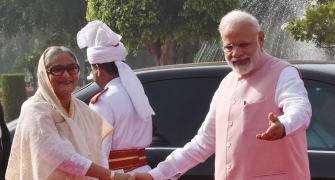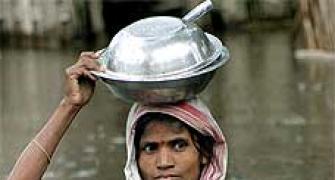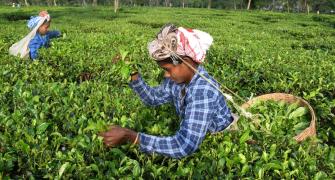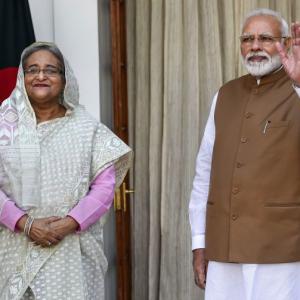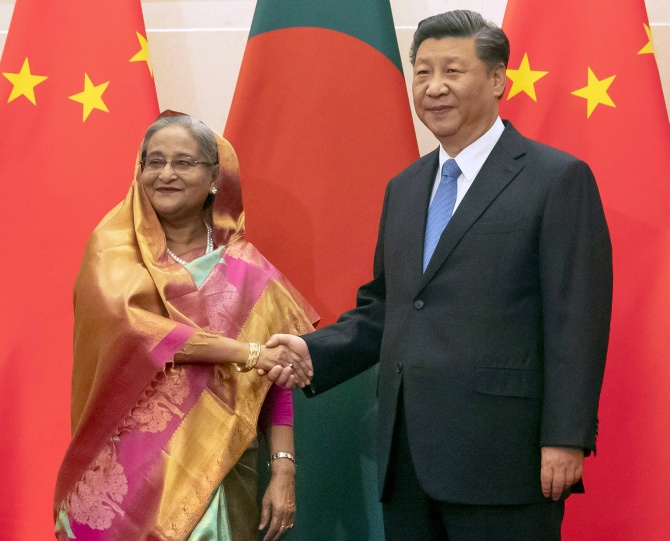Under the Indo-Bangladesh Protocol on Inland Water Transit & Trade between India and Bangladesh inland vessels of one country can transit through the specified routes of the other.

The Inland Waterways Authority of India (IWAI) is harnessing the national waterways 1, 2 and the Indo-Bangladesh protocol route for standalone port activities, multi-modal terminals and cruise tourism.
“We will change the way transportation is undertaken. We will cooperate with the railways and road authorities as well as state governments to address all the multi-stakeholder challenges to make it a success,” Amita Prasad, chairman, IWAI, told Business Standard.
The Indo-Bangladesh Protocol on Inland Water Transit & Trade exists between India and Bangladesh under which inland vessels of one country can transit through the specified routes of the other.
The route includes the Rupnarayan river (National Waterway-86) from Geonkhali to Kolaghatin in West Bengal. Kolaghatin and Chilmari in Bangladesh have been declared the new ports of call under the protocol. Fly ash, cement, construction materials, and other commodities are transported from India to Bangladesh through inland waterways on the Rupnarayan.
In order to promote coastal movement and access the cargo potential, IWAI will host workshops in the coming months across Kochi (Kerala), Vijayawada (Andhra Pradesh), Sahibganj (Jharkhand), Kolkata (West Bengal), Dibrugarh (Assam), Surat (Gujarat) and Patna (Bihar).
IWAI aims to increase cargo transportation to 120 million tonnes by 2023 from the current 72 million tonne.
Badarpur on the river Barak (NW16) is the extended port of call of Karimganjin in Assam and Ghorasal of Ashuganj in Bangladesh on a reciprocal basis. Experts feel that there is good potential to transport foodgrains also on this route.
“We can even send the ration under the public distribution system (PDS) to the Seven Sister (northern eastern) states through this route if Bangladesh allows it and cooperates. It will be a lot cheaper than sending by road and railways,” said former shipping secretary Vishwapati Trivedi.
In 2018, both sides also agreed on the development of Jogighopa as a hub/trans-shipment terminal for movement of cargo to Assam, Arunachal Pradesh, Nagaland and Bhutan and notifying Munsiganj River terminal by Bangladesh customs for routing third party cargo through Kolkata Port.
The move will also bring about significant reduction in logistics cost and lead to faster delivery of Bangladesh export cargo.
Another sector is the Jharkhand region where Prime Minister Narendra Modi inaugurated the multi-modal cargo terminal at Sahibganj last month. It is the second of the three multi modal terminals (MMTs) being constructed on the Ganga under the Jal Marg Vikas Project (JMVP). In November 2018, Modi had inaugurated the first multimodal terminal in Varanasi.
The Sahibganj terminal has an annual cargo storing capacity of 3 million tonne (mt), a stockyard and parking, and berthing space for two vessels. It could help industries in Jharkhand and Bihar access global markets. Additionally, the Indo-Nepal cargo connectivity through the waterways route would also be better served.
It will play an important role in transportation of domestic coal from local mines located in the Rajmahal area (Sahibganj district) to other thermal power plants located along the National Waterway-1 (NW-1).
Sahibganj, with rail and highway connectivity, can help in linking parts of the hinterland to Haldia near Kolkata and further to the North-East through Bangladesh by the river and sea routes.


